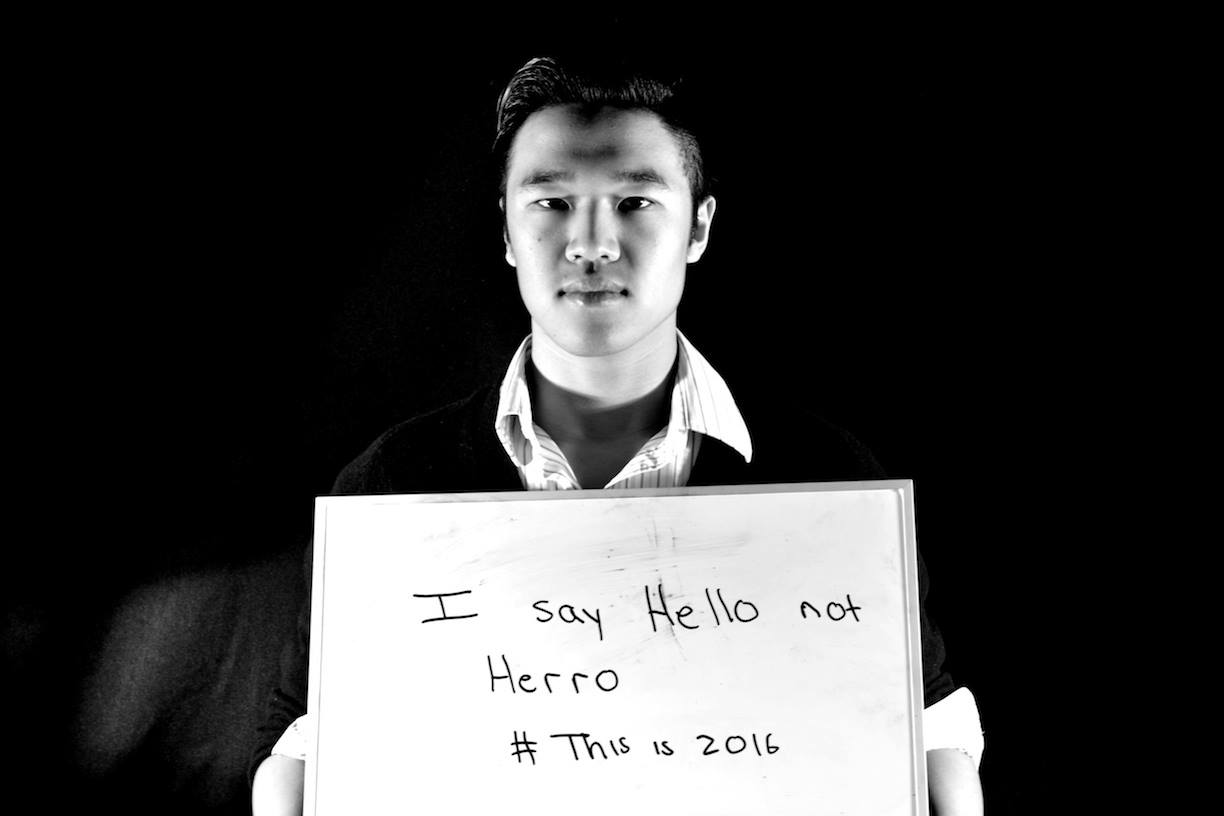#thisis2016, even if there have been a fair few times this year where it’s felt pretty 20th century.
Between Trump, Brexit and Kanye deciding he wasn’t content with being called Yeezy/Yeezus (he also needed to be known as Pablo) it does seem like the only silver lining of 2016 was that we got a brand new Harry Potter movie – thanks, J.K. Rowling.
So, do we need to run through the series of unfortunate events that has been this year? I didn’t think so – the past 11 months have been a circus. That is, a circus ending with a pretty alarming wake up call.
It was a year slated for shattering the highest and hardest of all glass ceilings, for affirming the female voice and recognising the boundless capacity of women in roles where white-male power has been so ingrained. And yet, in America one man convicted of sexual assault walks free after serving three months of his sentence while another holds the title of president elect.
A little closer to home, Teenage Magazine publishes a piece, victim blaming. We hear echoes of the old (troubling) refrain “she was asking for it”. The glass ceiling remains intact, and misogyny is alive and well.
It’s also been the year of Western countries shutting their borders as refugees pour out of war-torn regions, surging police brutalities, of the Singapore government mandating race-reserved elections to introduce a semblance of equality (read: tokenism).
#thisis2016 was developed as a rally cry for Asian-Americans, a way for them to call out and share the day to day racism they experienced. And with the year we’ve had, there are a couple more things we need to stand against.
“She was asking for it”
Ah, the final frontier of victim blaming. An old classic. In a perfect world, a sexual assault victim would be met with empathy instead of doubt, but somehow people take it upon themselves to judge the nature of the victim to see whether their claim to sympathy is valid. Was there drinking involved? How short was her skirt? Did she obey the endless set of rules women have to follow in order to have their humanity respected?
This mindset is harmful for so many reasons, not only because it protects the perpetrator but because it reinforces the victim’s feelings of guilt. Society does not need to climb aboard the victim’s guilt-trip train, because chances are, she’s already there. And she shouldn’t be – she did nothing wrong. No one “asks for it”.
“Facebook news = the truth, the whole truth and nothing but the truth”
We are living in the post-truth era. Remember that meme telling you to apply for that job you want but have no experience for because if Trump did it, so can you? Not only is zero experience required, but in our post-Trump world, it means you can flat out lie in your interview too. Facts no longer matter – it’s erratic, deliberately misinformed tweets and Facebook fake news chaos for us all now! Case in point: that meme that 11,000 Americans voted for Harambe? It’s a lie. Even though we don’t have to navigate bi-partisan social media echo chambers, it’s on us to fact check the things we read online.
“Political correctness has gone too far”
Language matters – it can be used to incite and isolate, as well as to affirm. We’ve seen how words served to sever a country pretty deeply divided to begin with – words that were passed off as locker room talk, words so racially charged (any bad hombres up in here?). It’s not so hard to reimagine them in a different context. Foreign trash. PRC scum. Or, in an accidental slip of the tongue. You don’t even look Indian. You’re so pretty… for a [insert race here]. Words matter. They matter a lot. They draw a line between ourselves and the “other”, oftentimes without us realising. We all have our prejudices, and we need to safeguard against them – starting with our words (and you know, actions too).
#thisis2016 and there are only 30 days left to it. If we’re to rescue ourselves from the shambles this year has become, we’ve got some work to do.
Top Image Credit: Bowdoin Asian Students Association
